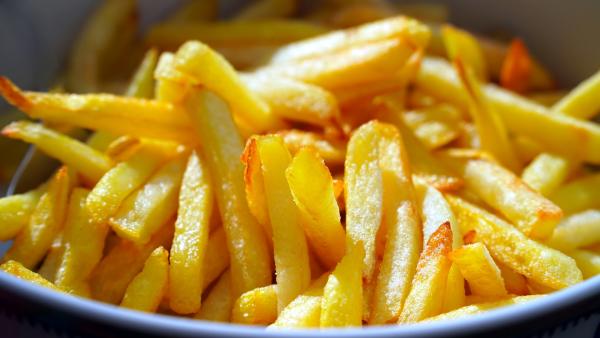OK, before jumping in, the work was supported by BIG Potato. To be fair, additional funding came from BIG Walnut and BIG Almond – you may judge the study as you wish. That said, it did offer a methodology different from the usual observational study.
“We tested the hypothesis that there is no difference in weight gain (specifically fat mass change) with increased daily potato consumption (e.g., French fries) versus an isoenergetic (i.e., calorie-matched) portion of almonds, a food item with reported benefits for weight and glycemia control, in a 30-day RCT [randomized control trial].”
To answer that question, they recruited 165 individuals, predominantly female (66%), age 30, with BMIs of 25-26 and no laboratory evidence of diabetes. This was a free-living study; the researchers did not control the subjects’ environment, activity, or diet. In addition to their regular diet, they simply required them to eat isocaloric amounts (300 calories) of almonds in the control group or frozen and prepared French fries (with or without a spice/herb mix) in the experimental groups. The amount of body fat present, body weight, and alterations of carbohydrate metabolism were the outcomes of interest.
Good News For the Potato
- Total percentages of fat did not change between the almond and French Fry groups
- Nor was there a difference in fasting glucose, insulin, HbA1c, or insulin resistance. [1]
- Over the 30-day study, almonds resulted in a weight gain of roughly a pound, French fries alone, about a half-pound, and French fries with spices, a pound.
Bad News For the Potato
- Despite the insignificant weight changes and diabetes markers, almonds resulted in lower post-meal glucose and insulin responses than potatoes; potatoes with spices had an intermediate response.
It is this finding we might consider more deeply. Given the effect of almonds on glucose metabolism, you might have expected a more pronounced effect on those other markers of diabetes. The short-term nature of the study may have precluded differences that would have risen to detectable levels.
It is understandable that almonds would have little metabolic effect on glucose; their glycemic index is 0 – they are mostly fiber and fat. Potatoes, on the other hand, have a glycemic index of 50. But the impact of potatoes with spice was between those extremes. Solely considering one nutrient out of many is a fool’s errand. The addition of spice resulted in a mitigation of the effect of the potato alone. What is the metabolic mechanism behind that response?
There is no one cause of weight gain or loss. It is more complex than singling out one nutrient as bad or a superfood. This study, funded by BIG Potato, finds that potatoes are no worse than almonds; it is OK to have “fries with that.” But to maintain a healthy weight, in addition to the fries, we need to exercise, get a good night's rest, and remember “everything in moderation.”
[1] This used the Homeostatic Model Assessment for Insulin Resistance (HOMA-IR), a formula for determining insulin resistance relatively easily. It is a calculation involving fasting insulin and glucose levels. Generally, values greater than 2 signify insulin resistance.
Source: French-fried potatoes consumption and energy balance: a randomized controlled Am J Clin Nutr DOI: 10.1093/ajcn/nqac045.




